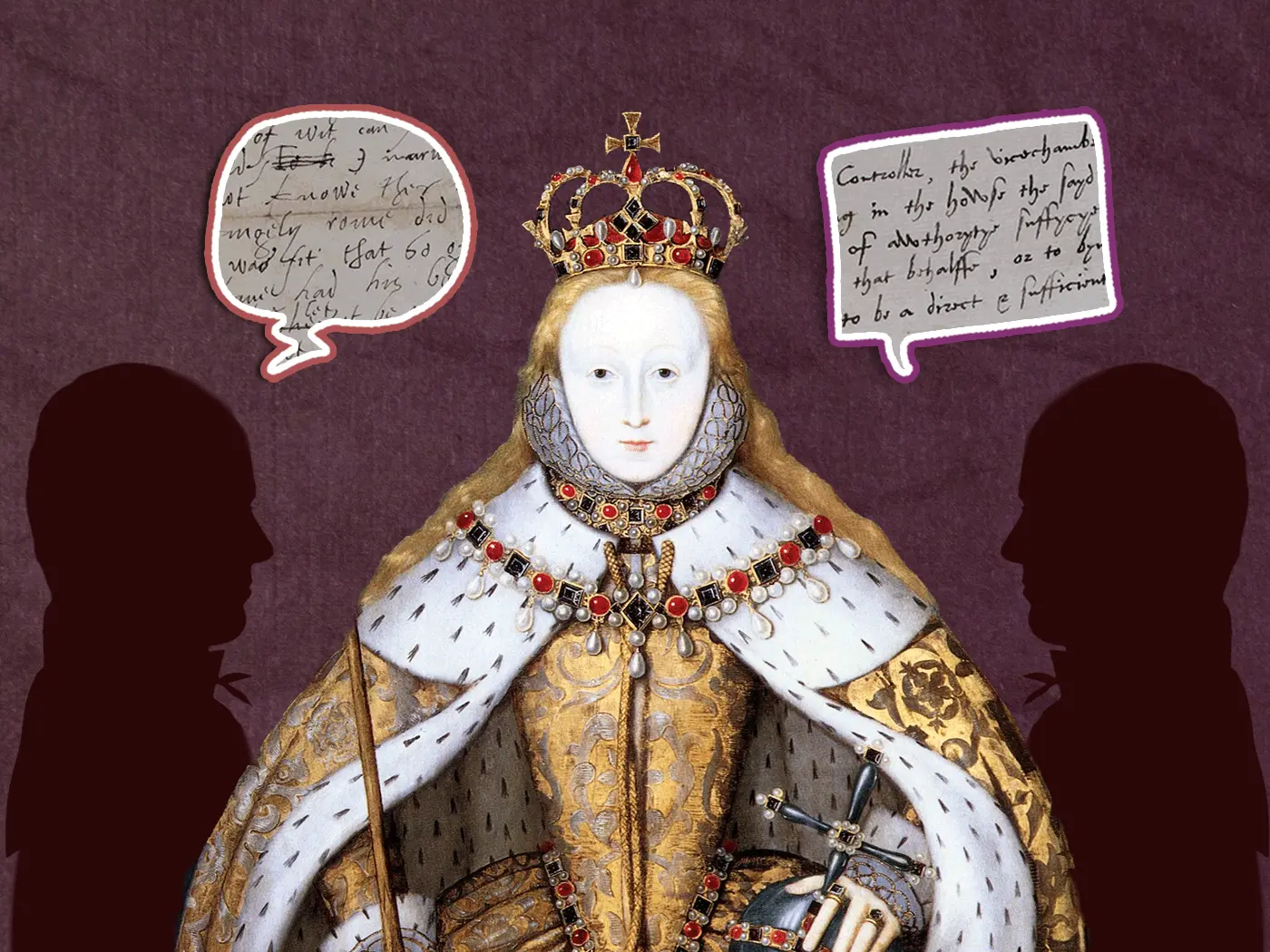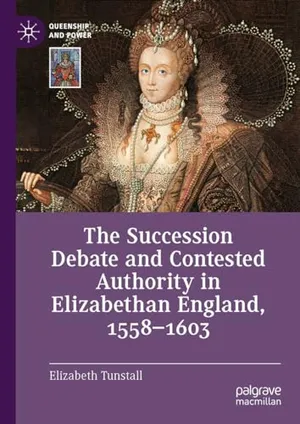In the autumn of 1566, the Parliament of England gathered at the Palace of Westminster in London. The session was fraught from the outset, with many members of the House of Commons urging their queen, Elizabeth I, to establish the succession to the English throne—an issue of paramount importance, as many believed that if she died without a clearly defined heir, the kingdom would descend into civil war.
When Elizabeth heard that Parliament was once again discussing the succession, she summoned members of the House of Lords and the House of Commons to court. There, the Tudor queen told them, “At this present, it is not convenient, nor never shall be without some peril unto you and certain danger unto me,” to resolve the issue.
When the Commons reconvened, its members were deeply dissatisfied with Elizabeth’s response, and they resolved to prepare legislation on the succession. Upon hearing that the Commons was once again seeking to meddle in the matter, Elizabeth sent a command that the topic be dropped, which at the time was well within her rights, as the succession was seen as a royal prerogative.
The Succession Debate and Contested Authority in Elizabethan England, 1558-1603
Commencing with a consideration of the succession tracts and the laws that governed the succession, this book seeks to examine the matter in terms of its original 16th-century context.
Producing an heir was arguably an early modern monarch’s most pressing duty. Forty years prior, Elizabeth’s father, Henry VIII, had sought a divorce from his first wife, Catherine of Aragon, after their marriage failed to produce a male heir. Elizabeth was Henry’s daughter from his second marriage, to Anne Boleyn, and she’d only inherited the throne after her two siblings, Mary I and Edward VI, died childless. Nicknamed the Virgin Queen, Elizabeth famously remained unmarried, refusing to either bear a child or name a relative as her successor. As she once told a Scottish diplomat, “Princes cannot like their own children. Think you that I could love my own winding-sheet?” (another name for a burial shroud). In the paranoid monarch’s mind, any heir would pose a threat to her reign, offering conspirators a welcome alternative to their queen.
On November 11, 1566, Paul Wentworth, the member for Buckingham, rose within the Commons to speak. Paul was a firm Protestant who was strongly concerned by the risks of an unsettled succession, especially if it allowed Elizabeth’s cousin, the Catholic Mary, Queen of Scots, to take the English throne. In the eyes of Catholic Europe, Elizabeth was the illegitimate child of an unlawful marriage, while Mary, the paternal granddaughter of Henry’s older sister Margaret, was the rightful English heir.
When Paul stood that day in the Commons, it was evident that his frustration at being unable to pursue the succession had led him to question the crown in Parliament. Among the questions Paul asked was “whether her highness’ commandment, forbidding the Lower House to speak or treat anymore of the succession, … be a breach of the liberty of the free speech of the House or not.” His comments sparked a heated debate that continued into the afternoon without any clear solution, laying bare the conflicting rights of both monarch and Commons.
Free speech in the Tudor period was rather different than it is today. In 16th-century England, free speech was seen as a parliamentary privilege rather than a right for everyone. The kingdom’s first request for free speech was delivered by Thomas More, then-speaker of the Commons, in 1523, during the reign of Henry VIII. By Elizabeth’s reign, the speaker’s request that members of the Commons “have frank and free liberties to speak their minds, without any controlment, blame, grudge, menaces or displeasure,” was an established practice. The liberty of free speech granted to the Commons was seen as essential; without it, members could not fulfill their duties. Still, the privilege was not without its limitations.
/https://tf-cmsv2-smithsonianmag-media.s3.amazonaws.com/filer_public/5e/ac/5eacf75a-24aa-426c-8b2e-c647911815b8/dp890178.jpg)
/https://tf-cmsv2-smithsonianmag-media.s3.amazonaws.com/filer_public/3a/81/3a818e17-a885-46c1-816d-0429ed2282c4/1562-eliz.jpg)
During the 1566 session, the issue of free speech continued to attract members’ attention for a full 14 days after Paul’s initial comment, until Elizabeth rescinded her command to stop discussing the succession. The matter did not reappear during that session of Parliament. While Paul’s questions did not achieve much, they are significant as one of the earliest attempts to define parliamentary free speech by a member of the Commons. It took another ten years for free speech to be raised again at Westminster. Once more, it was a Wentworth who argued the case.
In 1572, Paul sat in Parliament alongside his older brother, Peter Wentworth, who represented Tregony, a borough in Cornwall. Parliament had been called to discuss the Ridolfi Plot, which implicated Mary, Queen of Scots—then a captive of Elizabeth—in a conspiracy against her English cousin. The session was highly combative, with many members calling for Mary’s execution, or at the very least her exclusion from the succession. But while Elizabeth acknowledged her people’s concerns, she refused to act and instead prorogued the Parliament, discontinuing the session without formally dissolving it. When Parliament was recalled at a later date, the same elected members returned, and for many, the topics raised in the earlier session carried on to the next.
Peter spent the years following the 1572 session dwelling on the succession and the right to free speech in the Commons—issues that had grown intertwined in his mind. When Parliament was recalled in 1576, he wasted no time addressing a matter that he felt was of paramount importance.
/https://tf-cmsv2-smithsonianmag-media.s3.amazonaws.com/filer_public/93/cb/93cb97a8-1115-4cf2-9ff4-bdcbfbd8563a/peter-wentworths-questions-sp-12-41-f33.jpg)
On the very first day of the session, February 8, Peter rose to his feet. His speech began in a stirring manner, stating, “Sweet is the name of liberty, but the thing itself a value beyond all inestimable treasure.” Peter argued that a monarch’s restriction of free speech in Parliament could damage the realm, as it would impede the Commons’ ability to perform its duty. Without free speech, he said, “It is a scorn and mockery to call it a Parliament House, for in truth it is none, but a very school of flattery and dissimulation, and so a fit place to serve the devil and his angels in, and not to glorify God and benefit the commonwealth.” Peter’s message was shocking to many. His “unreverent and undutiful words” led other members of the Commons to isolate him and arrange for him to be questioned by a committee.
That same afternoon, a group of Commons members—all of whom also sat on the queen’s Privy Council, a select governing body that advised Elizabeth on matters of state, much like an American president’s cabinet—questioned Peter. At first, he refused to answer, demanding to know whether they were interrogating him as privy counselors or fellow members of the Commons. When they stated the latter, he replied that he had been ruminating on the matter for the past two or three years. Peter continued to assert that instructions from Elizabeth that interfered with the deliberations of the Commons violated Parliament’s right to free speech.
“If the message be against the glory of God, against the prince’s safety or against the liberty of this Parliament House whereby the state is maintained, I neither may nor will hold my peace,” he said. This argument represented a radical reinterpretation of the rights of the Commons, as monarchs before Elizabeth had similarly sent messages directing the assembly’s deliberations without drawing dissent.
/https://tf-cmsv2-smithsonianmag-media.s3.amazonaws.com/filer_public/ed/8d/ed8d75a3-fb4f-4e66-91ea-49b0e47255bc/hans_holbein_the_younger_-_sir_thomas_more_-_google_art_project.jpg)
/https://tf-cmsv2-smithsonianmag-media.s3.amazonaws.com/filer_public/81/50/81501a87-c910-4ef1-a17a-4d8bed177497/puckering.jpg)
The committee reported its findings on February 9. The Commons then voted to send Peter to the Tower of London, where he was detained until March 12, when he returned to the House. Peter was forced to apologize for his words before he was restored to his position as a member of Parliament. A few days later, the session ended, but the matter of free speech continued to drive Peter, and his imprisonment did little to curb his passion for the subject.
In the Parliament of 1586 to 1587, Peter joined the Commons once more, though this time he sat for Northampton. While the 1586 session was focused on the revelation of Mary, Queen of Scots, being involved in yet another conspiracy, the Babington Plot, the 1587 session saw Peter once again raise the issue of free speech. On March 1, Peter approached the speaker, requesting permission to address the Commons on several questions he had prepared. The speaker said he would think about the questions before letting Peter present them, pocketing the list to read later.
Peter’s questions were numerous and focused on the rights of Parliament. They began with the relatively innocuous, such as if the monarchy or kingdom could survive without Parliament. But they quickly moved beyond the pale, with Peter asking whether the queen or her government would be “as enemies unto God” should they “do anything to infringe the liberties of this honorable council.”
/https://tf-cmsv2-smithsonianmag-media.s3.amazonaws.com/filer_public/96/b4/96b44048-b267-4661-9b4d-1ad5b7fb5219/elizabeth_i_procession_portrait.jpg)
After the speaker read the notes, Peter found himself once again sent to the Tower. His imprisonment may have been a result of his questions, but it’s also possible that he discussed matters of Parliament outside of the Commons, where the right to free speech would not have protected him. Regardless of the reasons for his latest stay in the Tower, he was released after the session and, undaunted, felt driven to try one last time to pursue free speech in Parliament.
Peter sat again for Northampton in the governing body’s 1593 session. Unlike in his previous sessions, Peter didn’t make any comments about free speech, nor did he present questions about it to the Commons. Instead, he simply asserted the right to free speech as he had always argued it should be. On February 24, shortly after the session began, Peter and fellow Commons member Henry Bromley approached the speaker. They stated that they had prepared a petition and a bill concerning the succession.
When the queen found out about the discussion, she expressed her annoyance that the subject was once again dominating the Commons’ sessions. In response, members decided to imprison the main dissenters, sending Peter to the Tower one final time. He died there three years later, in November 1596.
/https://tf-cmsv2-smithsonianmag-media.s3.amazonaws.com/filer_public/af/05/af058c3e-4ecc-4d4d-9414-61229120fe1c/anonymous_-_coronation_of_james_i_westminster_abbey_-_b19771417888_-_yale_center_for_british_art.jpg)
Elizabeth, for her part, died in March 1603, potentially without naming a successor. A later chronicler suggested that the dying Elizabeth drew a circlet above her head to indicate her approval of the accession of James VI of Scotland, son of Mary, Queen of Scots. But that account was written during the early years of James’ reign, when there was a need to support the incoming Stuart dynasty, so scholars are unsure if Elizabeth actually named an heir on her deathbed.
Across four sessions of Parliament, the Wentworth brothers campaigned ceaselessly for the liberty of free speech in the Commons. They were driven by the ongoing succession crisis, which they felt Elizabeth was ignoring, placing England in danger of civil war or foreign invasion. Historians have debated the significance of the Wentworth brothers’ stand for free speech for at least a century: Some argue that the siblings’ actions signified the beginning of a confrontation between the Commons and the crown that led to the mid-17th-century English Civil Wars, while others say the Wentworths’ importance has been overstated.
It is certainly true that the Wentworths’ views on free speech were not widespread. Indeed, the individuals opposing them were often fellow members of the Commons. But that isn’t to say they stood alone, as the lengthy debates about their questions in the Commons attest. What can be said with certainty is that the Wentworth brothers were early campaigners for free speech, especially when it affected the greater good of the realm.
A Note to our Readers
Smithsonian magazine participates in affiliate link advertising programs. If you purchase an item through these links, we receive a commission.

/https://tf-cmsv2-smithsonianmag-media.s3.amazonaws.com/accounts/headshot/tunstall.png)

/https://tf-cmsv2-smithsonianmag-media.s3.amazonaws.com/accounts/headshot/tunstall.png)